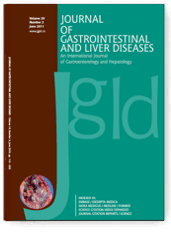For the first time, researchers at the University of Chicago Celiac Disease Center will use mouse model research to explore root causes of celiac disease, test new therapies, and explore new targets for treatment.
Celiac disease is the most common genetic autoimmune disease in the world. Celiac disease affects approximately three million Americans, but only three out of every one hundred people with celiac disease have been diagnosed.
Celiac.com Sponsor (A12):
At least ninety-seven percent of people with celiac disease undiagnosed. Untreated celiac disease can lead to osteoporosis, infertility, neurological conditions, and cancer. Moreover, people with celiac disease have a substantially higher risk of developing other autoimmune diseases, especially Type-1 diabetes.
Bana Jabri, M.D., Ph.D., Associate Professor, University of Chicago Medical Center, and a leading celiac disease researcher, will create the new mouse model with the goal of identifying new remedies and preventive treatments targeted at children of families with a history of celiac disease. The studies will also investigate events that contribute to the development of Type-1 diabetes.
“There is a critical need to provide the proper resources to those who suffer from celiac disease,” said Stefano Guandalini, M.D., professor of pediatrics at the University of Chicago Medical Center, founder and medical director of the Celiac Disease Center. “This commitment from University of Chicago Celiac Advisory Board reaffirms the Celiac Disease Center’s mission to bring cutting edge research, education and encouragement to those affected by the disease”.
Dr. Jabri believes that mouse models are central to understanding the underlying causes of celiac disease, its connection to other autoimmune diseases.
The University of Chicago Celiac Disease Center is a 501-c3 non-profit organization, completely funded by donor contributions, and committed to improving the care, diagnosis and awareness of celiac disease. The University of Chicago Celiac Disease Center also provides necessary infrastructure and support for cutting-edge celiac research, including investigations into structure of gluten peptides and the mechanisms by which gluten modifies self molecules.
Mouse model studies show promise in helping researchers to better and more quickly unlock the secrets of celiac disease.
For more information please visit: www.celiacdisease.net








Recommended Comments
There are no comments to display.